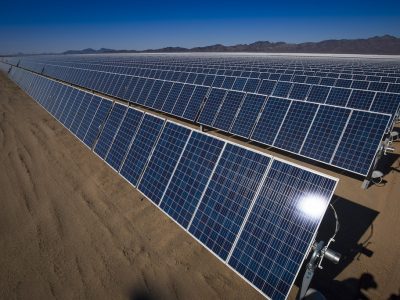Californians still support action to reduce greenhouse gas emissions, according to new report

California, for better or worse, is still a bellwether state on many public policy issues. Public opinion here matters, not just as a predictor of our state’s future political direction, but also nationally. And California’s residents’ opinions about environmental issues are particularly important, given our state’s leadership on environmental issues. Right now, there is a fierce battle in the state over whether voters will prevent implementation of our landmark greenhouse gas emissions law AB 32, and the federal climate bill stalled in the Senate. So Californians’ opinion on climate change-related regulation seems particularly important right now.
A well-respected nonprofit organization, the Public Policy Institute of California, recently released the 2010 update of the annual PPIC Statewide Survey: Californians and the Environment. The results are interesting, and, if accurate, demonstrate that our state’s voters still support robust environmental protection, though there are certainly some internal tensions and even contradictions in the report’s findings. A summary of the report is here, and the full report is here.
The report found that a majority of Californians now opposes offshore oil drilling, an about-face from recent years’ surveys, and that about two-thirds of California residents support AB 32, which will be under attack at the ballot box this November, holding steady from last year.
The increase in opposition to offshore oil drilling follows a period of increased public support for drilling, likely related to concerns about energy security and the perception that drilling off the coast of California would reduce our dependence on foreign oil. It seems very likely that the BP oil spill has reversed that trend, at least for now.
The climate change survey answers seem to bode well for California’s future leadership on reducing greenhouse gases. According to the survey, Californians overwhelmingly believe that climate change will threaten our future economy and lifestyle:
Nearly three-fourths say global warming is a very serious (44%) or somewhat serious (29%) threat to California’s future economy and quality of life.
At the same time, Californians are split on whether our climate-change policies will reduce unemployment, with almost half seeing it as a boon to our economy:
Proposition 23 would suspend AB 32 until unemployment in the state is 5.5 percent or lower for four consecutive quarters. We asked Californians how the state’s actions to reduce global warming would affect employment. Forty-five percent say the result would be more jobs, 23 percent say fewer jobs, and 24 percent say the number of jobs wouldn’t be affected.
And the poll posed this general question, with Proposition 23 – the voter initiative that would suspect AB 32’s implementaton – in mind:
Should the government take action to reduce emissions right away or wait until the state economy and job situation improve? A slim majority (53%) say California should act right away, while 42 percent say the state should wait.
The results seem paradoxical. 73% of poll respondents believe climate change is at least a somewhat serious problem, and 69% of poll respondents said that the state’s actions to combat climate change will either result in more jobs or in no change in the job outlook. But a much smaller 53% of respondents believe California should act right away. This is a puzzling difference.
And many Californians appear to be in the dark about the nature of the policies about which they’re implicitly expressing an opinion, with 54% having never even heard of the idea of a cap-and-trade system — the centerpiece of California’s program implementing AB 32. Interestingly, the survey found that Californians are much more likely to support a carbon tax (60% favor, 33% oppose, with support up several points from last year) than a cap-and-trade system. This flies in the face of the conventional view that voters reject taxes because they are taxes.
Finally, in response to specific questions about whether the government should require emissions reductions from stationary and mobile sources, require increases in energy efficiency in our buildings, and require increased use of renewable energy, the overwhelming majority of respondents supported each of the measures. And perhaps the poll’s biggest surprise was that even a majority of Republicans supported each of these measures, in contrast to the survey’s other questions, which elicited highly partisan responses in which Republicans as a group favored inaction on climate change.
The message in all this? Hard to tell. It’s interesting that Californians of all political persuasions think it’s a good idea for the state to regulate more in specific areas in order to reduce greenhouse emissions (and increase energy security and self-sufficiency), at least when asked a direct question about it. The lack of aversion to a carbon tax is noteworthy. And most fundamentally, most Californians believe that taking action to combat climate change will be either neutral or beneficial to our economy. Perhaps our politicians and policymakers can afford to be bolder in their aspirations and policy prescriptions, and bolder as well in promoting the synergy between environmental protection and economic development. But the concerns about our economy — and Proposition 23’s clear attempt to take advantage of economic fears — may carry the day yet.







Reader Comments